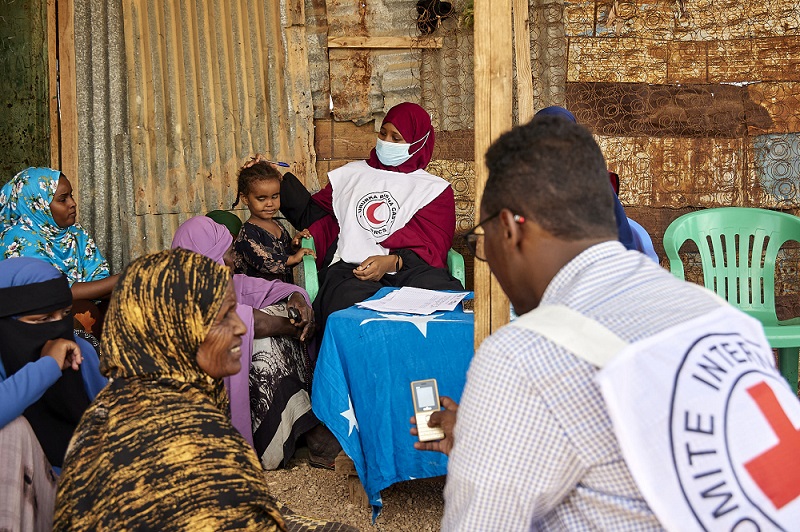Three months into the conflict in Las Anod, more families continue to flee the fighting in the territory of Sool. Close to 200,000 people have been displaced from the region due to conflict and insecurity this year, according to data from the Protection and Return Monitoring Network. Since the onset of the fighting in early February, the International Committee of the Red Cross (ICRC) and the Somali Red Crescent Society (SRCS) have carried out the following activities* while calling for restraint and unimpeded humanitarian access to people affected by the clashes.
- Six hospitals received surgical materials, enough to treat 400 patients with injuries caused by the fighting. The ICRC also delivered six dressing sets to treat the wounded with less severe injuries.
- Four ambulances, complete with drivers and SRCS volunteers, were mobilized to ferry the wounded to hospital. 38 first aid kits were also provided to the SRCS. So far, close to 1,117 casualties have been provided with pre-hospital treatment, assistance and transport to the next level of care.
- 88 wounded people from Las Anod received surgical treatment in Mogadishu’s Madina Hospital, a facility supported by the ICRC.
- An SRCS surgical team and an ambulance unit from Mogadishu and Galkayo respectively, were sent to Las Anod to further support health services.
- Close to 4,000 displaced families in Kalabaydh, Dhagax Isgurow, Xidhxidh, Dhumay and Dharkayn villages received two rounds of cash support. Each household got $130 for the first round and $110 for the second. The sum is enough to cover their basic needs for at least two months.
- Close to 2,000 IDP families in Buhodle have been registered and will be receiving a similar cash support.
- ICRC is closely monitoring the humanitarian consequences of the fighting, particularly incidents of harm caused to civilians and/or civilian property, including healthcare personnel and facilities, and continues to discuss concerns with the relevant parties.
- 85 free phone calls were provided jointly with the SRCS to the injured in the four hospitals of Garowe – Garowe General Hospital, Qaran Hospital, Carafat Hospital and Somcare hospital. 18 calls were also provided to the wounded patients in Kalabaydh Hospital in Las Anod.
- Almost 4,000 free phone calls were facilitated to restore and maintain family contact for displaced people in 32 IDP camps in Garowe.
- 26 tracing requests were collected from displaced persons in Garowe while eight were collected in Kalabaydh. 16 requests were also received from Ethiopia.
- The ICRC followed up several individual cases of persons allegedly detained in relation to the fighting in Las Anod, to identify their whereabouts across different places of detention the organization regularly visits.
- The ICRC visited a place of detention to follow up on the conditions and treatment of people detained in relation to the conflict, including providing family news services.
- Water trucking activities covering 350 families in Geed Dheer village for a period of six weeks was completed while fuel for two boreholes located in Saaxadheer and Dharkeyn was provided.
- 6,500 families across eight displacement camps in Sool region each received 60 water purifying tablets – enough to last them for two months – together with soap and jerrycans.
Download footage from ICRC Video Newsroom
For further information, please contact:
Abdikarim Mohamed, ICRC Somalia, tell: +254 770 171 756, mabdikarim@icrc.org
Anisa Hussein, ICRC Nairobi, tell: +254 708 797 750, anisah@icrc.org


